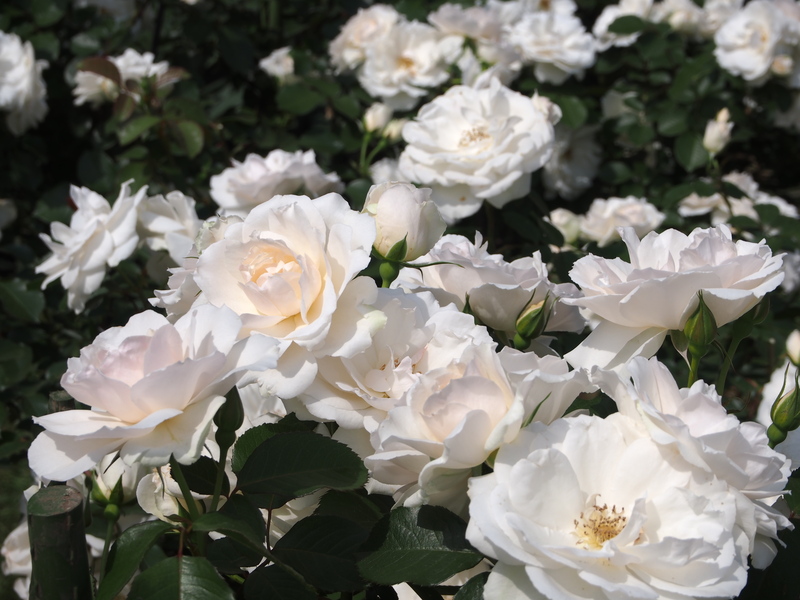The Ultimate Guide to Herb Garden Success
Posted on 03/09/2025
The Ultimate Guide to Herb Garden Success
Herb gardening has blossomed into a beloved hobby for culinary enthusiasts, health-conscious individuals, and home gardeners alike. Whether you want to enhance your meals with fresh flavors, craft natural remedies, or simply adorn your windowsill with lush greenery, this comprehensive guide to herb gardening will bring you closer to herb garden success. Read on to unlock expert tips, discover ideal plant choices, and master the art of cultivating a thriving herb garden.
Why Start a Herb Garden?
- Fresh Flavor: There's nothing quite like harvesting fresh herbs minutes before you cook.
- Cost Effective: Homegrown herbs save money compared to frequent store-bought bundles.
- Health & Wellness: Many herbs boast medicinal properties and antioxidants.
- Aesthetic Value: Herbs add a vibrant, aromatic charm to any garden or windowsill.
- Sustainability: Growing your own means fewer plastics and less environmental impact.

Choosing the Right Location for Your Herb Garden
Location is the cornerstone of herb garden success. Some herbs are forgiving, but most thrive with the right mix of sunlight, soil, and shelter.
Sunlight Requirements
Ensure your herbs get at least 6 hours of direct sunlight per day. A south-facing garden or window is ideal. If you lack natural light, consider supplementary grow lights.
Soil Quality
Most herbs flourish in loose, well-draining soil. Mix organic compost into your garden beds or containers to promote robust growth and nutrient absorption.
Shelter & Airflow
While herbs prefer lots of light, they also benefit from shelter against harsh winds. Place your herbs where they'll get airflow but not be battered by storms.
Popular Herbs for Beginners
If you're new to herb gardening, select varieties that are low-maintenance and hardy. Here are some perfect herbs for beginner gardeners:
- Basil: Fast-growing, versatile, and a staple in many cuisines.
- Mint: Extremely easy but should be grown in containers due to spreading tendencies.
- Parsley: Tolerates some shade and produces lush, flavorful leaves.
- Rosemary: Aromatic, drought-tolerant, and ideal for containers or borders.
- Chives: Hardy perennials with mild onion flavor, excellent for garnishing.
- Thyme: Requires little care and is excellent for rock gardens or pots.
Pro Tip: Begin with 3-5 herbs, then expand as your confidence and available space grow.
The Keys to Herb Garden Success
1. Selecting the Perfect Containers or Garden Beds
For those with limited space, containers, hanging baskets, and window boxes work wonders. Make sure containers have drainage holes and use high-quality potting soil. Ground beds should be weed-free and situated in sunny spots.
2. Proper Watering Techniques
- Soil Moisture: Most herbs prefer even moisture but dislike sitting in water. Water when the top inch of soil feels dry.
- Morning Watering: Watering early in the day helps minimize disease risks.
- Rainwater Collection: Herbs benefit from chlorine-free rainwater.
3. Fertilizing Your Herb Garden
Over-fertilization can blunt flavor. Mix in organic compost a few times a year and use diluted, balanced liquid fertilizers monthly during peak growing season.
4. Pruning and Pinching Techniques
- Pinch Early: Remove the growing tips of young herbs to encourage bushier growth.
- Frequent Harvesting: Regularly snipping off leaves allows herbs to focus on new shoots.
- Remove Flowers: Allowing herbs to bloom can reduce leaf production. Pinch flowers off early for maximum flavor.
Maximizing Your Herb Garden's Potential: Advanced Tips
Companion Planting
Certain herbs protect their neighbors and encourage growth. For example, basil improves the yield and flavor of tomatoes, while mint discourages aphids. Organize your garden beds for optimum synergy.
Controlling Pests & Disease
- Avoid Chemicals: Herbs are often consumed fresh, so opt for organic pest control: handpick bugs, use neem oil, or introduce beneficial insects like ladybugs.
- Good Air Circulation: Prevents powdery mildew and fungal diseases.
- Rotate Crops: Don't plant the same herb in one spot each year to outsmart soil-borne illnesses.
Overwintering Your Herbs
Many herbs struggle in winter. Pot up delicate perennials like rosemary and bring them indoors. For outdoor herbs, apply a light mulch to protect roots from freezing.
Harvesting for Maximum Flavor
- Morning Harvest: Harvest after dew dries but before midday sun, when flavors peak.
- Young Shoots: Cut stems before herbs flower for the best taste.
- Right Tools: Use sharp scissors or pruners to avoid damaging plants.
Preserving Your Harvest
- Drying: Hang herbs in small bundles in a warm, dry, shaded space.
- Freezing: Chop herbs and freeze in ice cube trays with oil or water for later use.
- Infusing: Steep fresh herbs in oils or vinegar for unique flavorings.
Common Problems (and Expert Solutions)
Poor Germination
Tip: Use high-quality seeds, keep soil consistently moist, and provide warmth with seedling mats if required.
Yellowing Leaves
Usually caused by overwatering or poor drainage. Let the soil dry between waterings and improve container drainage.
Leggy Growth
Herbs become leggy with too little sunlight. Move to a sunnier spot or invest in a grow light for guaranteed herb gardening success.
Creative Herb Garden Ideas
- Vertical Herb Gardens: Grow herbs up a wall or trellis for space-saving flair.
- Mason Jar Windowsills: Keep small culinary herbs within arm's reach in clear jars.
- Spiral Herb Bed: Design an eye-catching, functional spiral mound for improved drainage and microclimates.
- Pallet Planters: Recycle old pallets into rustic, organized herb planters.
Customizing Your Herb Garden for Culinary, Medicinal, or Aesthetic Use
Culinary Herb Gardens
- Basil, oregano, thyme, rosemary, chives, and savory are must-haves for most cooks.
- Group similar watering needs together for easier maintenance.
Medicinal Herb Gardens
- Grow chamomile, echinacea, calendula, lemon balm, sage, and lavender for natural remedies.
Aesthetic Herb Borders
- Use flowering herbs like lavender, borage, and chives for a visually stunning, aromatic border. These also attract pollinators.
Year-Round Herb Garden Success: Indoor Herb Gardening
Don't let limited outdoor space hold you back. Indoor herb gardens can thrive with proper care:
- Bright, south-facing windows or supplemental grow lights are essential.
- Choose compact varieties suited for pots, such as dwarf basil, parsley, or coriander.
- Keep indoor pots away from drafts and heating vents to prevent stress.
Troubleshooting Indoor Herb Gardens
- Watch for Gnats: Let soil dry slightly between waterings and use sticky traps if needed.
- Rotate Pots: Turn pots regularly to keep growth even and prevent legginess.
- Humidity: Group pots together or use a tray of pebbles and water to enhance humidity.

Final Thoughts: Achieve True Herb Garden Success
With careful planning, regular maintenance, and a touch of creativity, anyone can master the art of herb gardening. Whether you dream of aromatic basil, calming chamomile, or a rainbow of culinary flavors, this ultimate guide empowers you with the knowledge you need.
- Start small, but dream big. Track your progress in a gardening journal.
- Experiment with new varieties each season for added excitement.
- Share your bounty - nothing delights friends more than a gift of fresh, homegrown herbs!
Remember, herb garden success is a journey as much as a destination. Embrace the process, savor the flavors, and watch your green thumb grow!
Frequently Asked Questions (FAQ): Herb Garden Success
Q: How often should I fertilize my herb garden?A: Apply diluted liquid fertilizer monthly in the growing season and use organic compost 2-3 times per year for maximum growth.
Q: What are the easiest herbs to grow indoors?
A: Chives, basil, parsley, mint, and oregano adapt well to indoor environments.
Q: Can I grow herbs year-round?
A: Yes! With indoor setups and supplemental lighting, you can enjoy fresh herbs all year.
Q: What herbs repel pests?
A: Basil deters mosquitoes, rosemary wards off cabbage moths, and mint keeps aphids at bay.
Your Journey to Herb Garden Success Starts Today!
Take the first step with confidence. From picking the perfect plants to ensuring vibrant growth, your journey to herb garden success begins now. Use this guide as your roadmap--and may your home be filled with the scents, sights, and flavors of your thriving herb garden.
Latest Posts
Crafting the Ideal Hedge: Trimming Techniques for Beauty and Function
Reclaiming Your Garden: The First Steps Toward Transformation
Wind Management Techniques to Enhance Garden Health
Chill-Proofing Your Garden: Essential Winter Care Strategies

